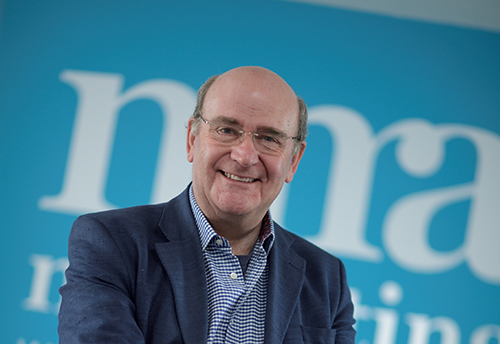Everyone needs a ‘magic mirror’

Everyone needs to hear the unvarnished truth and see themselves as others see them, says Mike Rigby, CEO of MRA Marketing & MRA Research
In the story of Snow White, the Evil Queen has a magic mirror. Every day she admires herself and asks: “Mirror, mirror on the wall, who is the fairest of them all?” Every day the mirror replies: “You are the fairest of them all.” She’s reassured to hear that because, unlike her courtiers and hangers on, the magic mirror doesn’t tell her just what she wants to hear. It never lies. One day the mirror replies: “You are the fairest here it’s true, but Snow White is more beautiful than you.”
Like all good stories, it has some important insights. A lot of research has been done on the importance of looks in our lives. The best looking among us have an easier time, get more help, avoid punishment, make more money, and have more sexual partners.
Now, fascinating new research in the Scandinavian Journal of Psychology suggests that unattractive people are largely unaware how unattractive they are. The research, which asked participants to rate their own and other people’s attractiveness, found that unattractive people tend to overestimate their attractiveness, while attractive people tend to underrate theirs. The research is based on six studies that asked participants to rate the attractiveness of themselves and other participants who were strangers. Those most likely to overestimate their looks were rated the least attractive. Overall, unattractive participants judged themselves to be of average attractiveness and showed little awareness that strangers did not share that view. Attractive people’s perceptions of self were more grounded in reality. Could it be, as other research suggests, that to protect their self-worth unattractive people downplay negative feedback?
Interestingly, these findings of cognitive bias in people’s assessment of their own and other people’s attractiveness echo previous research into the assessment of competence. This research by Dunning and Kruger became famous. It was designed to investigate and explain the cognitive bias evident in the bizarre criminal case of McArthur Wheeler. In 1995 he robbed two banks with his face covered only in lemon juice, believing it would make his face invisible to surveillance cameras. He believed that based on his misunderstanding of the chemical properties of lemon juice as an invisible ink! The researchers found that people who are competent tended to underestimate their competence, because they presumed that tasks that were easy for them were also easy for others, while the incompetent often overestimated their test performance. In contrast to high performers, poor performers learned less from feedback that suggested a need to improve, so they were less aware of shortcomings in their performance.
Our own research consistently finds that companies have corporate blind spots which hold them back. Brands may start believing their own propaganda, and companies often suffer from group think. Companies struggle to see themselves as customers and potential customers see them, and often repeat their mistakes.
Everyone needs a Magic Mirror, to see what others see, and they need the unvarnished truth. Good research never lies, and the value of independent expert research translates directly into competitive advantage that drives profitable growth.
If you’d like help seeing more clearly with our Magic Mirror research, call us on 01453 521621 or email hello@mra-research.co.uk.











